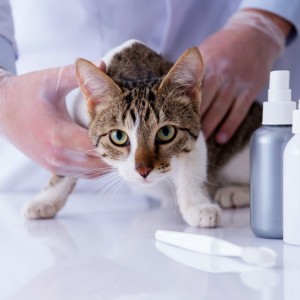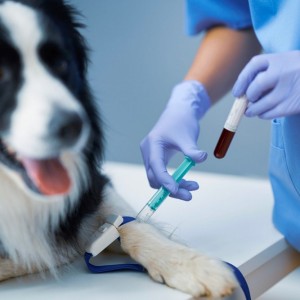No Lilies for Kitties
Pet Toxicology Experts Offer Educational Resources for Cat Lovers
“The spring season is filled with flowers, both inside and outside your home,” said Renee Schmid, DVM, DABT, DABVT, a senior veterinary toxicologist at Pet Poison Helpline. “One of the most popular flowers this time of year are lilies, some of which unfortunately can cause acute renal (kidney) failure in cats. In fact, last year the second-highest spike of calls to Pet Poison Helpline regarding lily exposure was on Mother’s Day. In 2020 Mother’s Day ranked number one. To help educate cat lovers about the dangers of lilies, we developed the educational campaign and website NoLiliesForKitties.com to provide cat owners a one-stop resource about this deadly threat. The site is now listed as a trusted resource for lily poisoning information on the official FDA website.”
Created in partnership with the Minnesota Veterinary Medical Association, the No Lilies for Kitties campaign includes downloadable graphics, PDFs and a video for printing and sharing online. Copies of the PDFs have also been sent to floral shops across the country for distribution to their customers.
“Our efforts to educate cat owners about the dangers of lilies is not new but it continues to be critically important,” added Dr. Schmid. “In fact, a lily-loving Domestic Shorthair cat named Emmy was featured as one of our Toxin Tail cases last year after she came in contact with a Valentine’s Day bouquet that contained lilies.”
“My wife loves lilies, so I bought her a bouquet for Valentine’s Day,” said Robert Milliner, Emmy’s owner. “Sometime in the middle of the night Emmy must have nibbled on the lilies and coated her face in pollen. She looked like Simba from that birth scene in the Lion King, with that orange color on her face. After a little online investigation, I realized that was not good. I called Pet Poison Helpline and took Emmy to our veterinarian.”
Many kinds of plants have “lily” as part of their name. A few grow wild in ditches and wooded areas, some are sold as bulbs in garden shops and many are used in floral arrangements. If you live with cats, it is critical to know which lilies are toxic to your feline friend. The most dangerous and potentially fatal lilies for cats are often referred to as “true lilies” or those in the genus Lilium. Common examples include Oriental hybrid lilies such Stargazer, Casa Blanca and rose lilies. These beautiful, fragrant and affordable flowers are often found in cut-flower bouquets. Other examples include potted Easter lilies or garden plants such as tiger lilies. Additionally, daylilies (Hemerocallis), although not a “true” lily, may also cause kidney failure in cats.
Exposure to any part of the plant, including leaves, flowers, pollen, or even the water from the vase may result in acute kidney failure in cats. These ingestions are medical emergencies requiring immediate veterinary care. Early decontamination, aggressive intravenous fluid therapy, renal function tests, and supportive care greatly improve the cat’s prognosis. Cases treated more than 18 hours from exposure have a poor prognosis. Dogs may experience minor gastrointestinal upset after ingestion of these lilies but do not appear to develop kidney damage.
“Although studies show that the mortality rate for lily poisoning can be 50% or higher for cats, our case data shows that when prompt and aggressive care is sought, fatalities are very rare,” added Dr. Schmid. “In a recent review of lily toxicity cases reported to Pet Poison Helpline over the last five years, 63% remained asymptomatic because of early treatment and there was only one patient death.”
For more information on which lilies are dangerous, and recommendations on safer cut-flower alternatives, visit NoLiliesForKitties.com. There are also links to sharable resources available. #NoLiliesForKitties.








List
Add
Please enter a comment